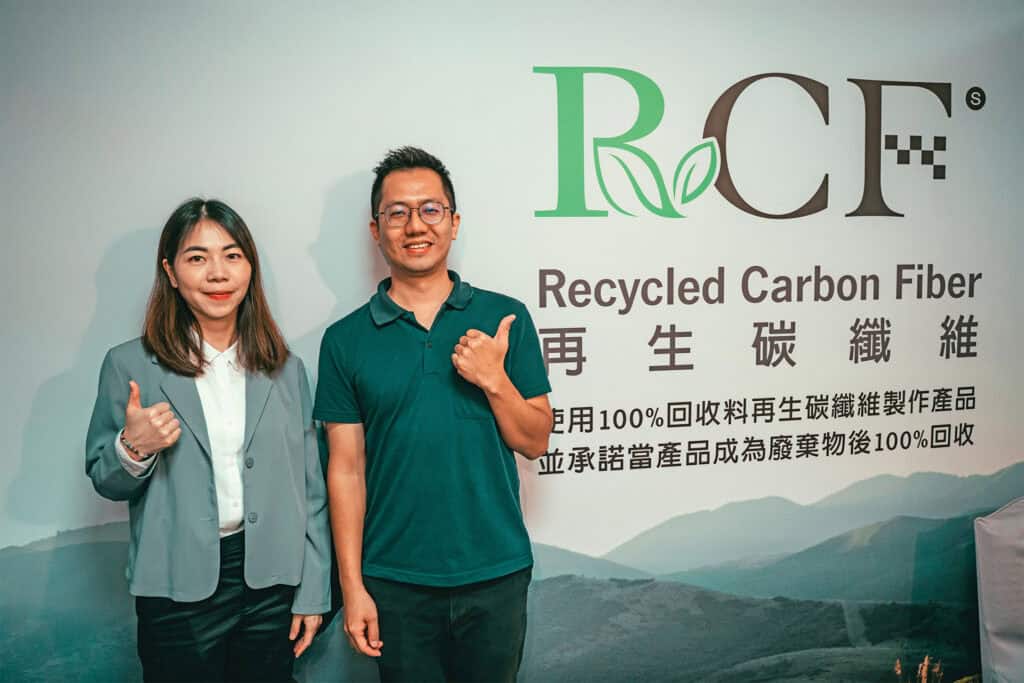Carbon recycling has become a hot topic in the cycling world. At last years’ Taichung Bike Week, Taiwanese manufacturer Thermolysis presented an interesting solution.

Carbon is a fantastic material that has sparked a technical revolution in the cycling industry over the past three decades. However, with the growing focus on sustainability in the sector, carbon is increasingly criticized due to its high carbon footprint. According to various sustainability reports in the bicycle industry, a carbon frame generates up to three times the CO2 footprint compared to its aluminum counterpart. To avoid losing out on the many benefits of carbon, carbon recycling has become an increasingly hot topic in the cycling world.
“Carbon recycling offers the chance to reuse carbon. That’s why we are proud to showcase our recycled carbon fiber solutions here at Taichung Bike Week,” said CC Lin, researcher and head of new business development at Thermolysis, during our visit to the booth on the first day of last year’s Taichung Bike Week.
Thermolysis Focuses on Cutting-Edge Carbon Recycling Technology
Founded in 2016 in Taichung, Thermolysis focuses on using microwave technology to separate carbon layers from resins. They have two factories—one in Taichung and one in Kaohsiung—and a total of 50 employees. The technology and the process behind the recycling process are called pyrolysis technology.
“We collect carbon waste from customers, then transform the waste material into recycled carbon. This recycled carbon is then made into intermediate products like pellets, which can be used in end products,” said Lin. At the company’s booth, items like shoes and pedals made with recycled carbon content were displayed. Additionally, the firm also cooperates with companies outside the bicycle industry.
Lin emphasized that the company operates under the guidelines of the UL 2809 Recycled Content Validation and ISO 14067 Carbon Footprint Verification. During the conversation, he also pointed to their in-house brand RCF, which produces products made from recycled carbon, including a bicycle saddle and a bottle cage.


